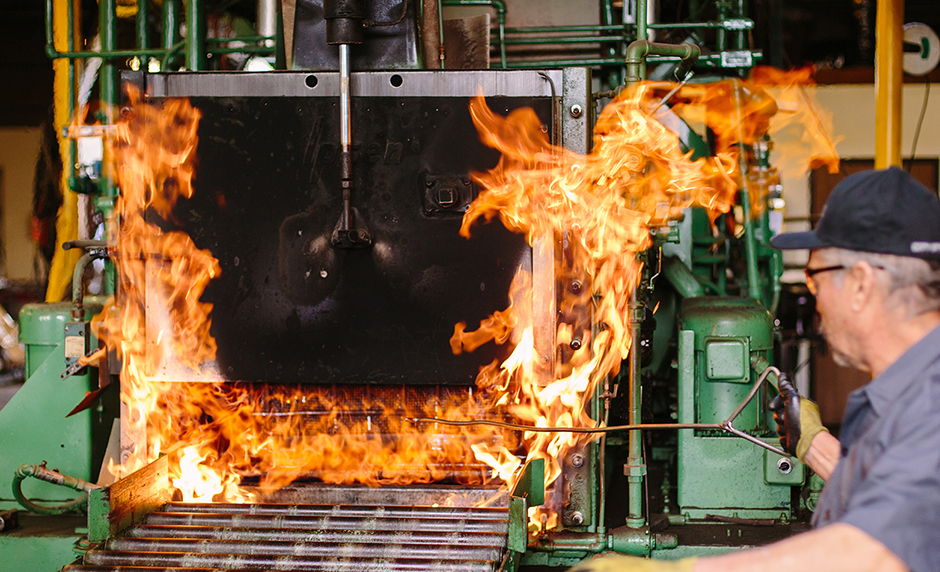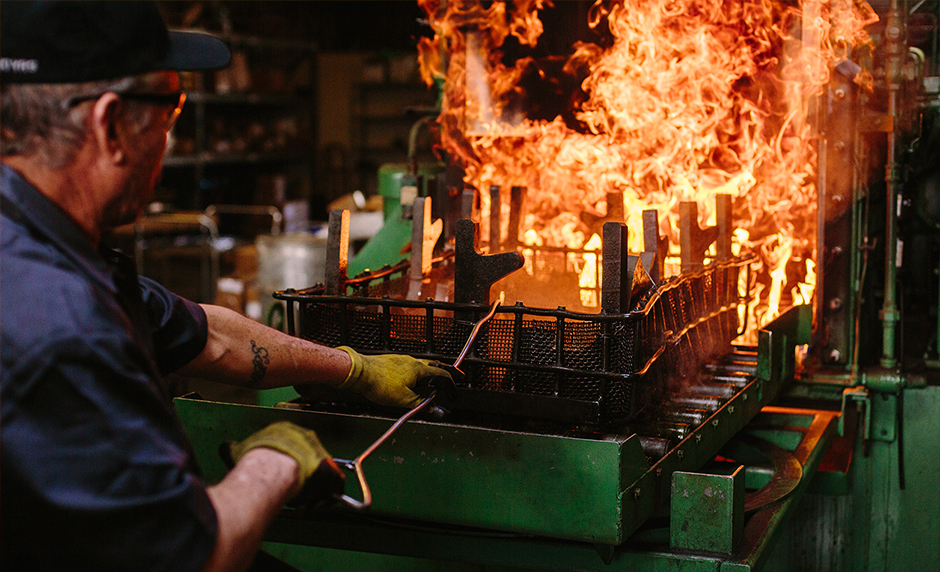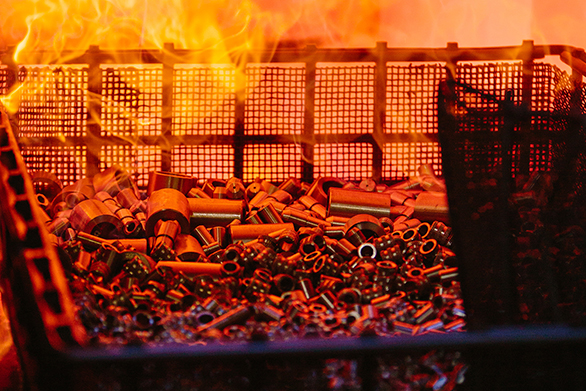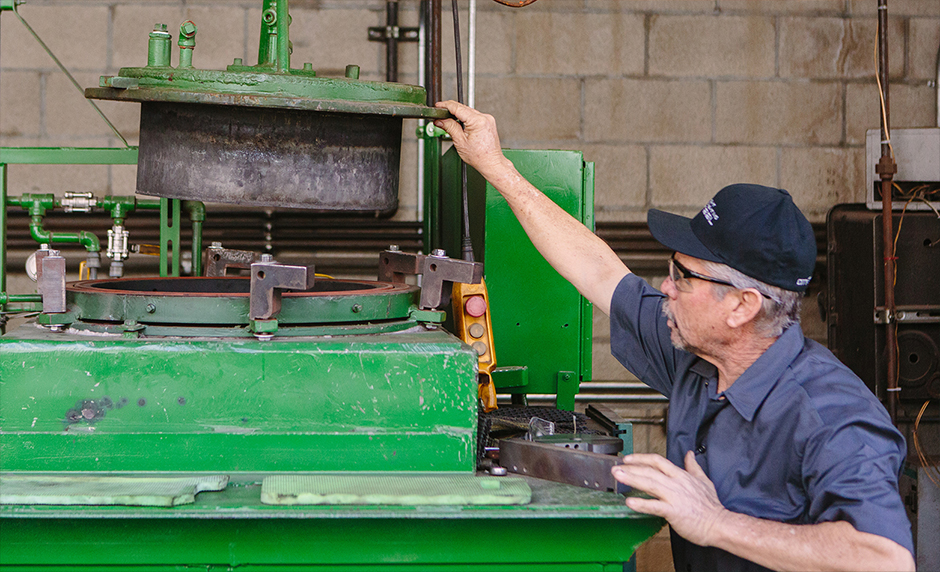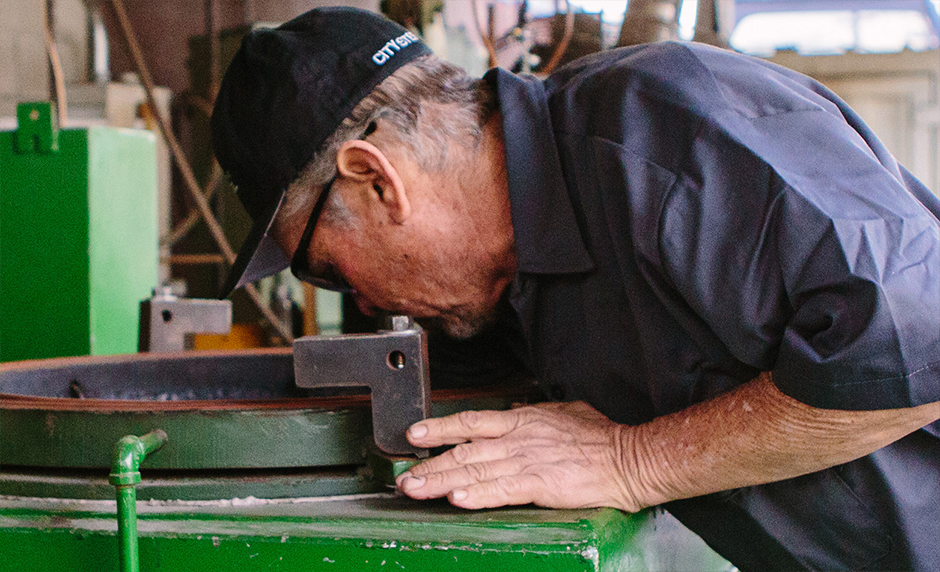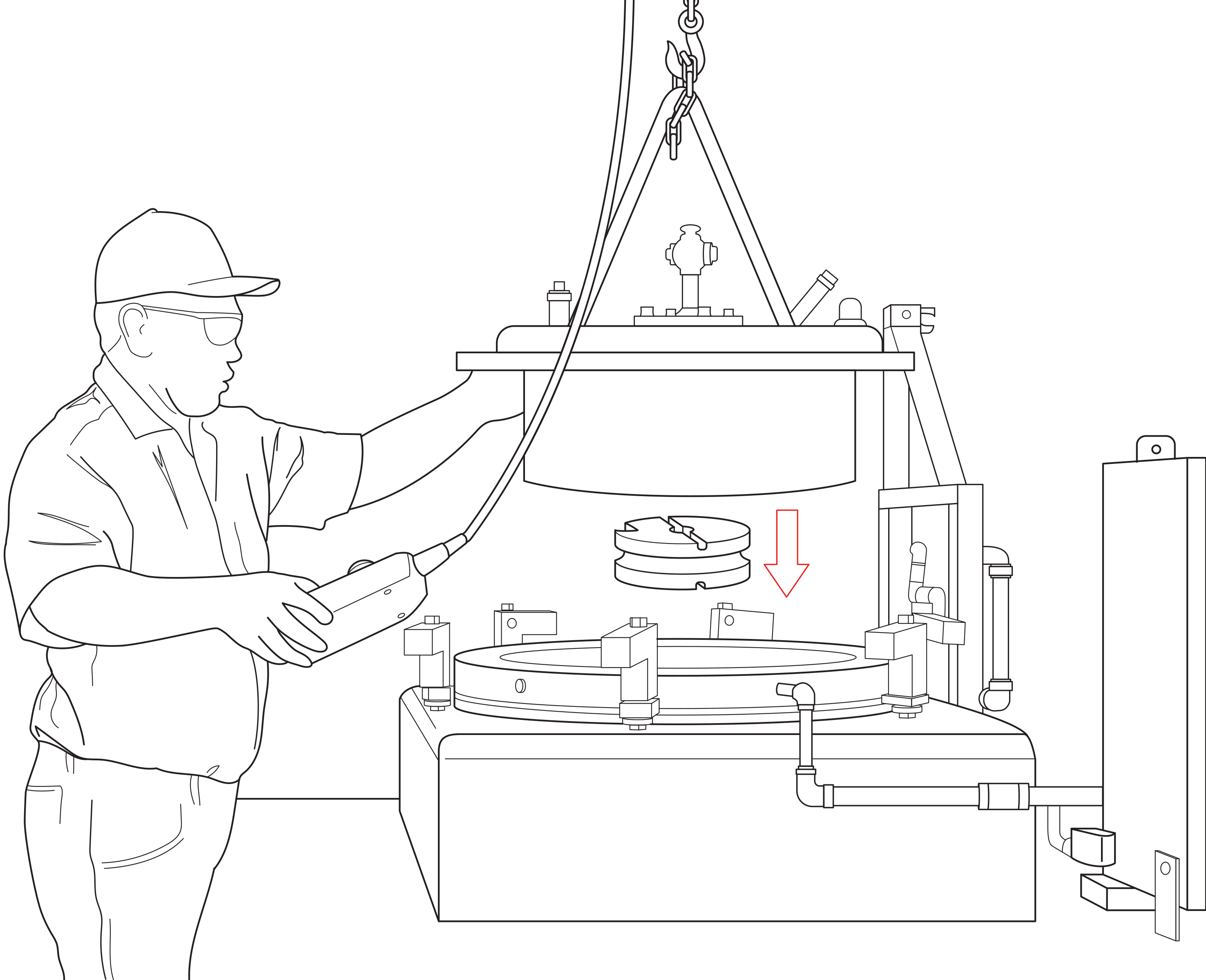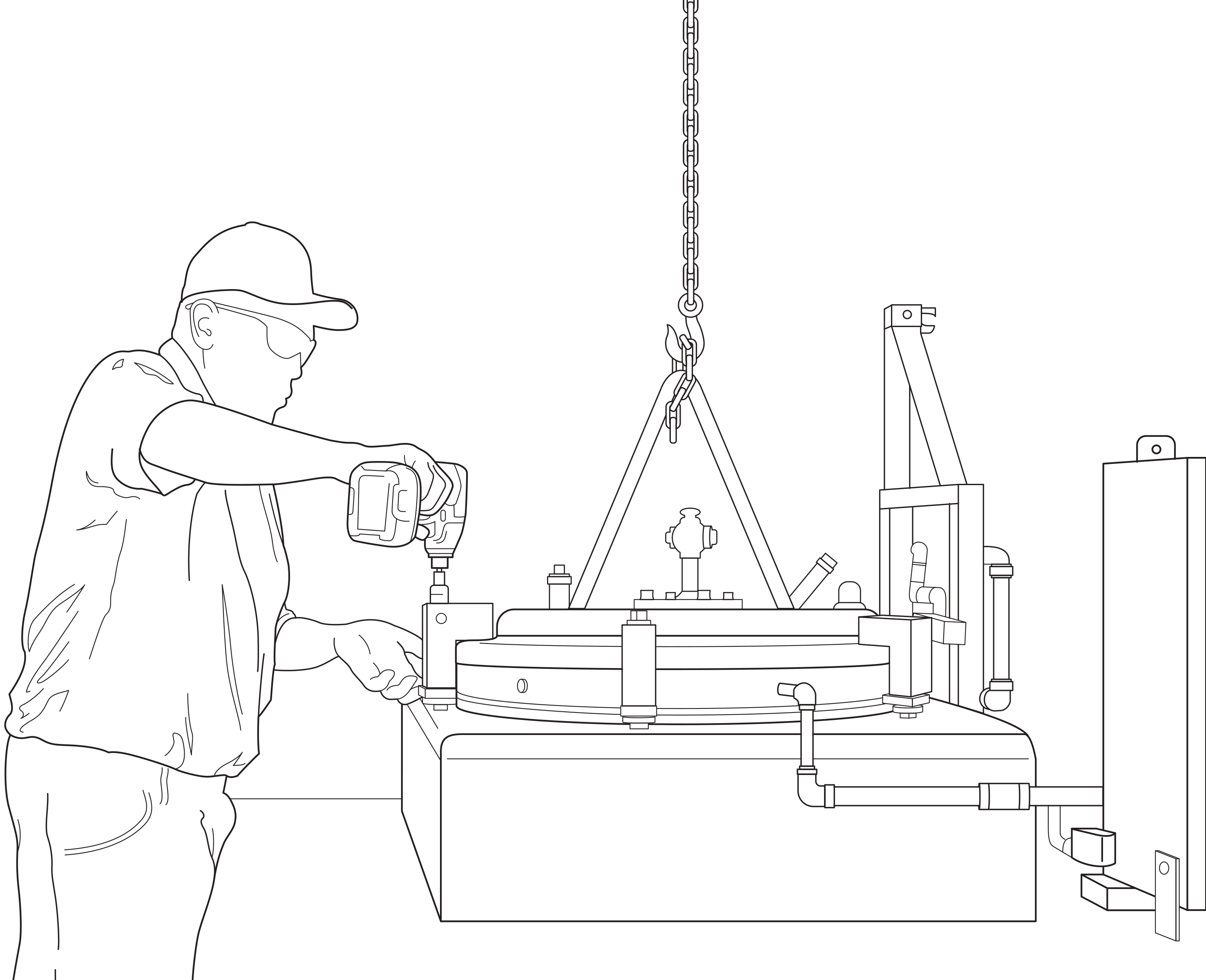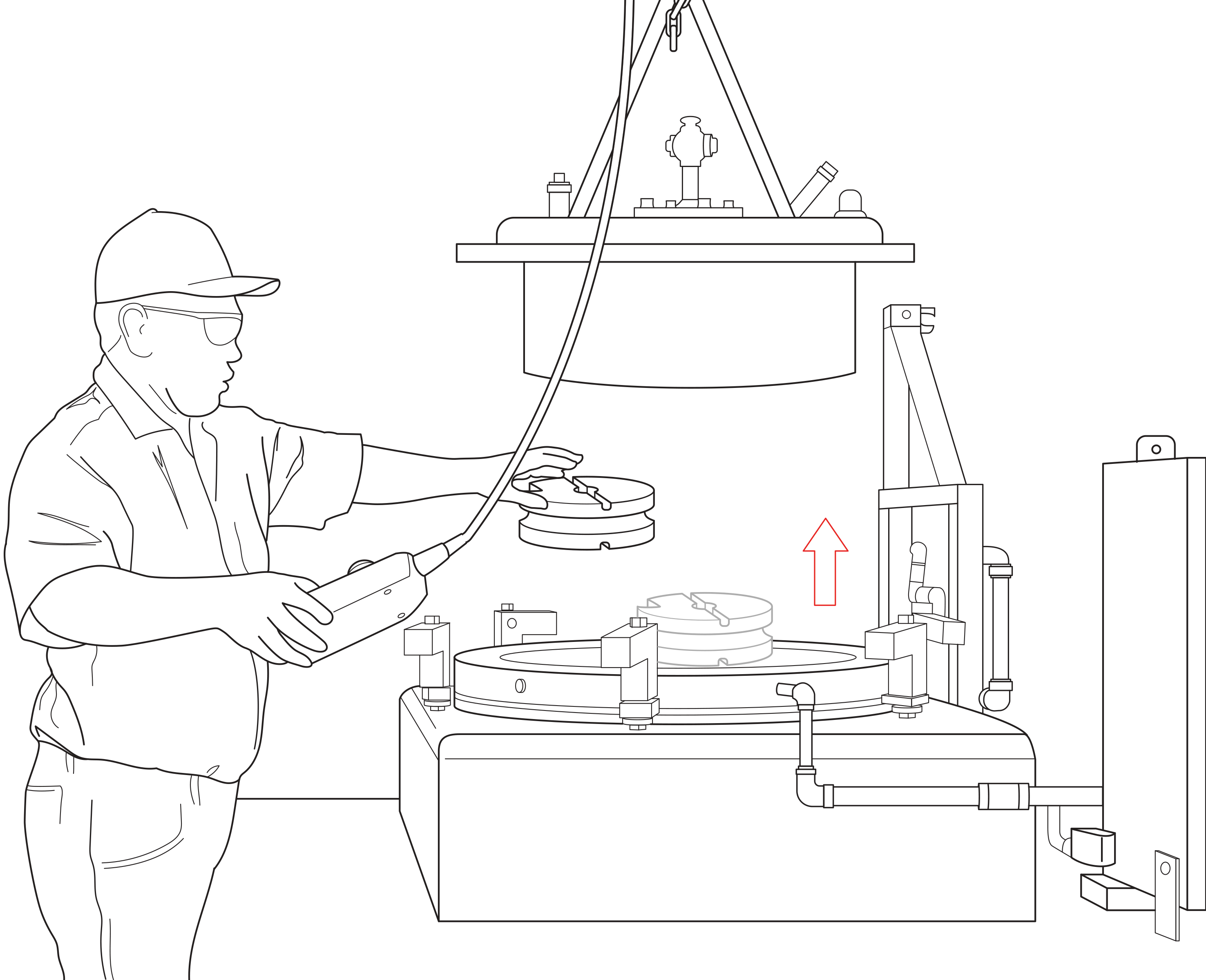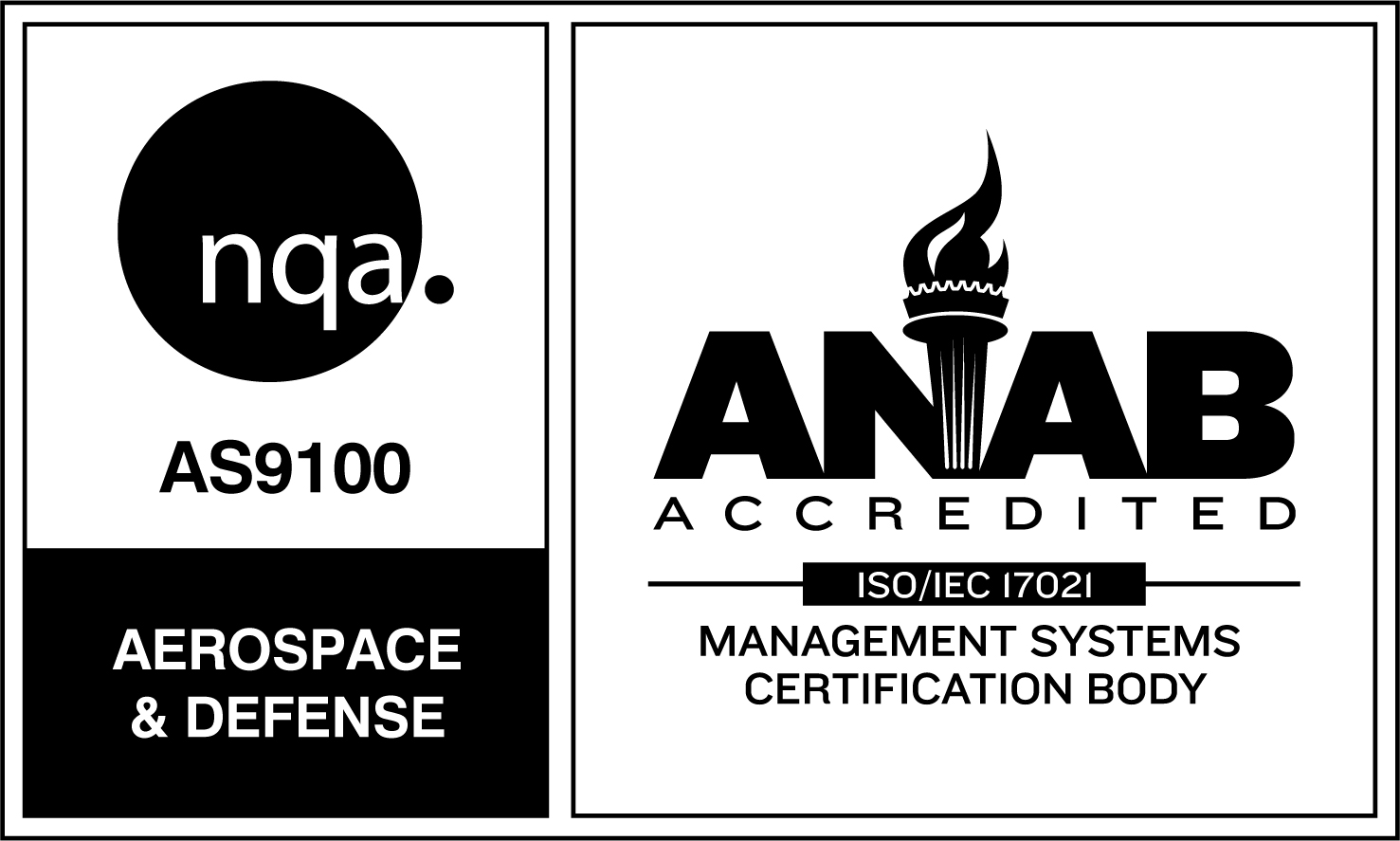Carburizing is a process used to harden low carbon steels that normally would not respond to quenching and tempering. This is done for economical reasons (utilizing less expensive steel) or design considerations to provide a tough part with good wear characteristics. Carburizing introduces carbon into a solid ferrous alloy by heating the metal in contact with a carbonaceous material to a temperature above the transformation range and holding at that temperature. The depth of penetration of carbon is dependent on temperature, time at temperature, and the composition of the carburizing agent. As a rough indication, a carburized depth of about .0.030 to 0.050 inches can be obtained in about 4 hours at 1700°F, depending upon the type of carburizing agent, which may be a solid, liquid, or gas. Since the primary object of carburizing is to secure a hard case and a relatively soft, tough core, only low-carbon steels (up to a maximum of about 0.25% carbon), either with or without alloying elements (nickel, chromium, manganese, molybdenum), are normally used. After carburizing, the steel will have a high carbon case graduating into the low-carbon core. Once the carburization is complete, the parts must be hardened and tempered to obtain the desired properties of both the core and the case.

